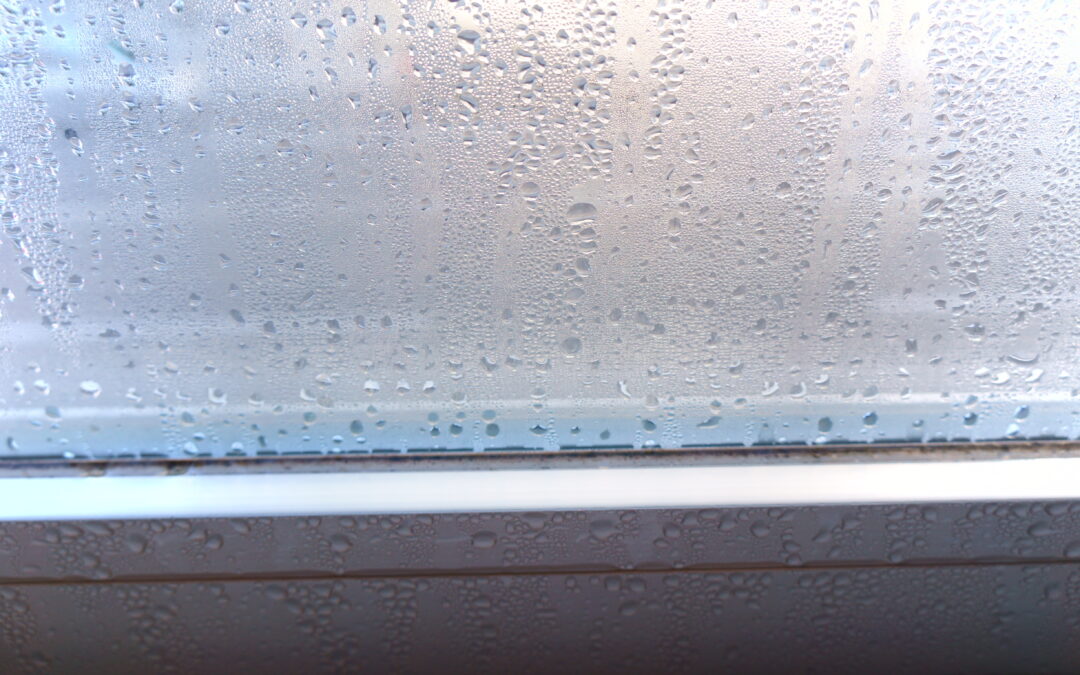The way basements and crawlspaces are formatted naturally lends them to moisture. Most crawlspaces have a dirt floor and that dirt releases moisture, creating an environment where mold and mildew can grow. Plus, these moist environments make for an ideal location for pests to reside.
If you’re new to owning a home with a crawlspace or want to learn more about preventing excess moisture in a basement, here’s your moisture-control guide to protect your home and extend its life.
How to Know if You Have a Problem
Having some moisture in your home will make it comfortable to live in. But too much moisture and you might end up with the following undesirable conditions.
- Rotting wood
- Mold
- Mildew
- Damaged insulation
So how can you tell if you have a moisture problem in your basement or crawlspace? The ideal humidity level for healthy air is 65 percent or lower. Anything over that and you’ll likely start to see ill effects.
You can find a digital thermos-hygrometer at your local hardware store to test your crawlspace air to know what to do next. If you already have musty air creeping into your living space or see signs of wood rot and mold or mildew growing in the space, you know you have a moisture-control problem.
Moisture-control Solutions
Moisture problems in basements and crawlspaces can come from a variety of sources. Here are common problems and how to solve them.
- Standing water: Generally, standing water is due to plumbing leaks or drainage issues. If the ground outside your home is not sloped properly, it might be allowing water to pool in your crawlspace instead of sending it away from the home as it should. The ground should decline away from your home at a grade of 5 percent or more. Otherwise, it will allow water to gather around your foundation and seep into your crawlspace.
- Cracks allowing ground moisture evaporation: The ground around your home will collect moisture no matter how good the grade around your home is. But if your foundation is properly sealed, it won’t have any way to get inside your home. Look for cracks or places where your crawlspace isn’t perfectly sealed.
- Outdated vents: As the construction industry learned more about crawlspaces and excess moisture, it became apparent that vents are not the best solution for preventing excess humidity. When the outside air becomes damp, these vents allow the damp air inside. And in the winter, vents can allow heat to exit your home.
- A dirt floor without a vapor barrier: Installing a vapor barrier is a crucial element in preventing moisture in crawlspaces with dirt floors. This will keep moisture away from your floor joists by sealing it into the dirt floor.
- Crawlspace or basement dehumidifier: Installing a dehumidifier in your crawlspace or basement can maintain effective humidity levels and ensure your home’s air is clean and dry.
How long it takes to solve excess moisture in your basement or crawlspace will depend on the problem you’re facing. Generally, it doesn’t take more than a few weeks to improve the air quality in your home and prevent serious foundational damage.
What Happens if You Don’t Correct Moisture Problems?
If you don’t correct moisture problems in your basement or crawlspace, you’ll face severe consequences.
- Mold and/or mildew growth, which will circulate upward toward your living spaces and can cause health problems and musty smells
- Rodent and pest infestations can cause serious damage to insulation and your home’s foundation
- Wood rot
- Sagging insulation
- Higher energy bills due to air escaping through your crawlspace
- Foundation issues that lead to structural damage.
What is Ground Water Intrusion and How Does It Happen?
After heavy rain or snow, the soil around your foundation will become saturated. That water around your foundation then pushes its way inside your basement or crawlspace through cracks or vents.
Homes that are properly sealed won’t face standing water or excess moisture after heavy rain. A firmly sealed foundation is essential for Tennessee homes because the state experiences an average rainfall of 51 inches. It ranks sixth for states with the most rain.
Unsure whether you have a moisture control problem in your basement or crawlspace? Schedule a free inspection now with Columbia CrawlSpace.

Recent Comments